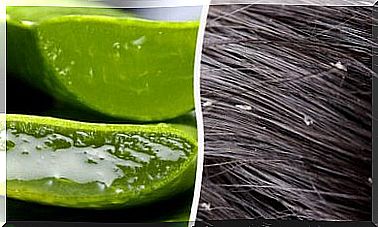Bergamot Essential Oil: Benefits And Possible Side Effects

Bergamot essential oil is obtained from the peel of the bergamot (Citrus bergamia). It is characterized by a special citrus aroma with floral notes. It is often used in aromatherapy for medicinal purposes.
In addition, due to the concentration of nutrients and antioxidants, it is considered an ally in skin care.
The fruit, as explained in an article published in Frontiers in Pharmacology, is a hybrid of bitter orange and lemon. The extracts obtained from it are used as a base for the preparation of perfumes, cosmetics, food and sweets.
However, Bergamot essential oil should be used with caution as it is not without side effects. What should I know about this? We will describe it below.
Bergamot essential oil – uses and properties
Due to its citrus aroma and pharmacological composition, bergamot essential oil is used in many personal care products. In particular, it can be found in colognes, soaps, body creams and cosmetics.
It is also used as a flavoring agent in the food industry or as an additive to other products.
According to information disclosed in the Flavor and Fragrance Journal , the oil contains bioactive molecules with potential health benefits. In particular, it contains a volatile fraction which is from 93% to 96% of the total and a non-volatile fraction which is 4% to 7% of the total.
Its main relationships are:
- Limonene.
- Linalool.
- Linalyl acetate.
- Gamma-terpinene.
- Beta-pinene.
- Pigments.
- Waxes.
- Coumarins.
- Psoralens.
However, while clinical trials with this product remain limited, it has been established to have antibacterial, antiseptic and anti-inflammatory properties. Similarly, antioxidant, analgesic and neuroprotective effects were observed.
Bergamot essential oil – benefits of use
In natural medicine, bergamot essential oil is used as an additive to reduce symptoms of stress, anxiety, and other mental health problems. It is also credited with supporting the lowering of cholesterol, high blood pressure and analgesic properties. What does the evidence say?

Beneficial effect on mood
Aromatherapy experts suggest that inhaling essential oils can transmit signals to the limbic system, the region of the brain that regulates emotions. As a consequence, it induces physiological effects that translate into the reduction of stress, anxiety and cardiac arrhythmias.
A study published by Current Drug Targets found that aromatherapy with bergamot and other essential oils stimulates the release of serotonin and dopamine, better known as the feel-good hormones. As a result, it helps to alleviate the symptoms of depression and other mood disorders.
Bergamot essential oil and elevated cholesterol
Bergamot contains antioxidant compounds that are beneficial for regulating cholesterol levels. In the studies made available by Phytomedicine, plant extracts showed a lipid-lowering effect attributed to their share of flavonoids.
Animal studies in the journal Nutrients confirm these properties and add that plant polyphenols exert anti-inflammatory and anti-diabetic effects. For now, more research is needed to elucidate the internal mechanisms involved.
Food poisoning remedy
One of the substances in bergamot essential oil, linalool, has been tested for its antibacterial activity. In particular, it has been observed to inhibit the growth of certain types of food poisoning bacteria such as Staphylococcus aureus and Escherichia coli.
As such, research in the Journal of Applied Microbiology found that bergamot compounds can help destroy the various strains of bacteria present on chicken skin and cabbage leaves. These were the following microorganisms:
- Staphylococcus aureus.
- Listeria monocytogenes.
- Bacillus cereus.
- Escherichia coli O157.
- Campylobacter jejuni.
The issue is still being researched and it is believed that in the future it could be the starting point for the treatment of these infections. For now, however, this should not be a first-line treatment option, but rather an option to support the treatment naturally.
Pain and swelling
Two compounds in bergamot essential oil, linalool and carvacrol, have analgesic and anti-inflammatory effects. In a research review shared by the International Journal of Molecular Sciences, these ingredients improved pain response and helped reduce inflammation. In addition, an anticonvulsant effect was observed.
Aromatherapy practitioners often combine this oil with a carrier oil (including coconut, almond, or olive oil) to relieve symptoms of arthritis and musculoskeletal ailments. For this purpose, it is usually used as a massage agent.
Bergamot essential oil and cosmetics and skin health
The anti-inflammatory and antibacterial properties of this essential oil are helpful in improving skin health. Its use (in conjunction with a carrier oil) reduces the incidence of acne, cysts and blackheads. It is also believed to help soothe eczema, ringworm and psoriasis.
Informal data shows that bergamot can soften hair and help control frizz. It is even said to help soothe irritated scalp. For this, about 6-8 drops of essential oil are added to the shampoo you usually use. You can also combine 2 or 3 drops with a massage carrier oil.
The dangers and possible side effects of bergamot oil
Pure bergamot essential oil is irritating to the skin. Therefore, it should not be used directly.
Instead, it is combined with the selected carrier oil or other similar product. People with sensitive skin should do a little test before use. If there are no signs of reaction after 24 hours, it can be used without any problems.
One of the substances in this product, bergapten, is phototoxic. This means that it increases your sensitivity to ultraviolet light, which leads to problems like photodermatosis. Therefore, after using the oil, you should rinse the skin well and apply a large amount of sunscreen.
For safety reasons, the oil should not be used by children, pregnant women, people with hypoglycaemia or patients taking medications that increase sensitivity to sunlight (such as ciprofloxacin). If in doubt, consult your doctor or pharmacist.

How to use bergamot essential oil?
There are several ways to take advantage of the properties of bergamot oil. The first is a fragrance diffuser, perfect for aromatherapy sessions. The latter can be replaced by diluting the oil in boiling water (from which the vapors are inhaled).
It is also a good idea to mix it with a carrier oil so that you can massage it in case of ailments. Finally, it can be found in supplements for oral consumption. It is important to use only those that are approved for human consumption and not to consume the oil in its pure form.
What should you remember about the oil?
Bergamot essential oil is a product that concentrates pharmacological compounds with a positive effect on our health. However, more evidence is needed to confirm the claimed benefits as well as safe dosages and possible side effects.
Therefore, it should not be a first-line treatment, but rather part of an adjuvant treatment. If possible, consult your healthcare practitioner before using it as a supplement or skin care product.









